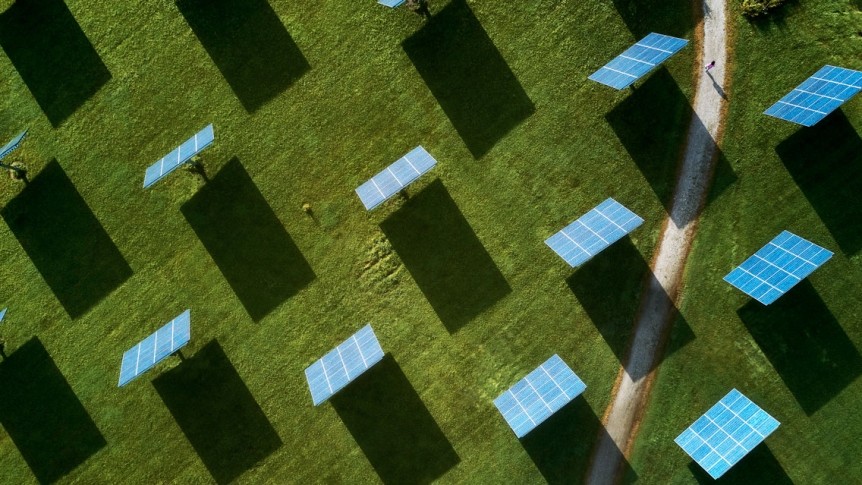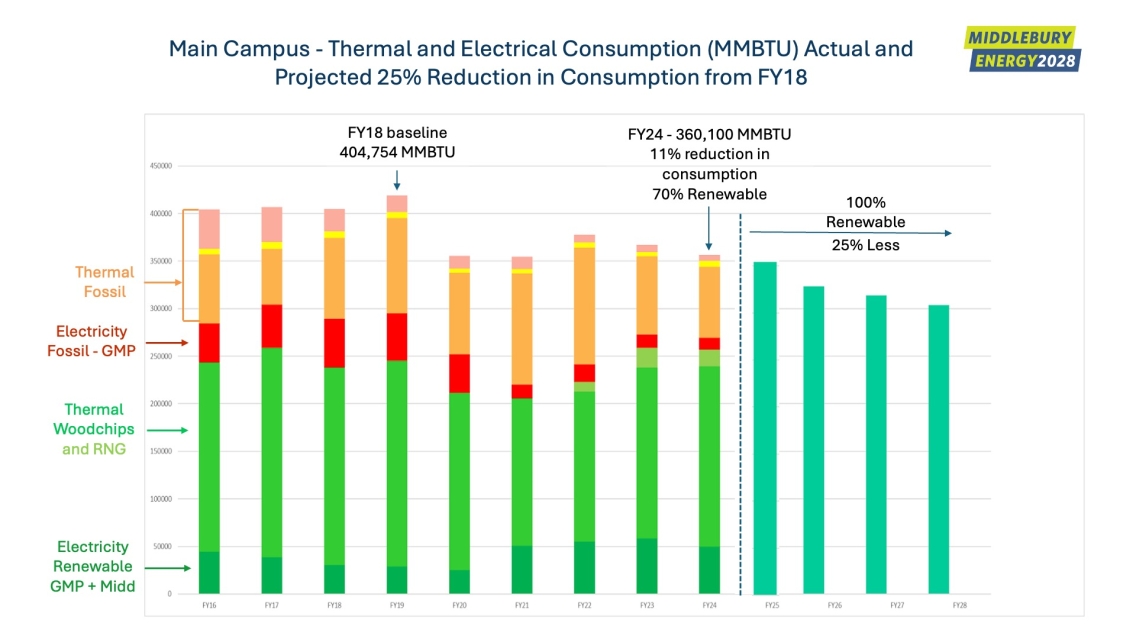100% Renewable

Middlebury achieved carbon neutrality in 2016 through a combination of renewable energy sources, efficiency and conservation efforts, and land conservation for carbon credits. With adoption of Energy2028 the focus now centers on renewables and continued reduction of energy use.
As of June 30 2024 Middlebury sourced 70 percent of its energy from renewables. The chart below also shows a reduction in energy use of 11% below a 2018 baseline.

Energy2028 Renewables Portfolio
Middlebury’s Energy2028 Renewables Portfolio includes the following sources of both thermal and electrical energy:
- Biomass (woodchip) gasification system that generates both steam and electricity for the campus.
- Renewable natural gas from anaerobic digestion of cow manure and food waste on a local dairy farm. The gas is used to generate steam and electricity for the campus.
- Numerous solar projects on and near the campus that together provide 50% of campus electricity. The other half is supplied by Green Mountain Power (GMP) which is 100% carbon neutral and 82% renewable as of 2023. GMP’s goal is to be 100% renewable by 2030.
South Street Solar Project
In 2024 Middlebury celebrated its largest solar project to date - a 5 megawatt system on 30 acres of College land that generates nearly 40% of electric use. Link to the South Street solar project production website.

